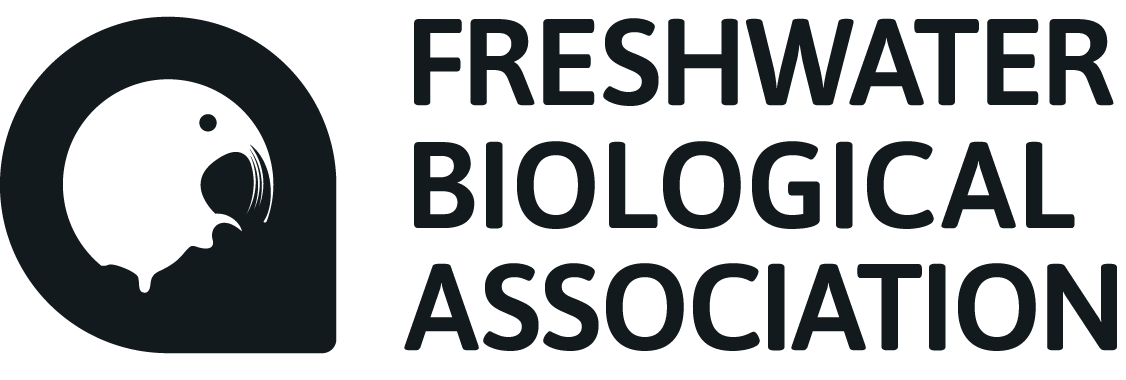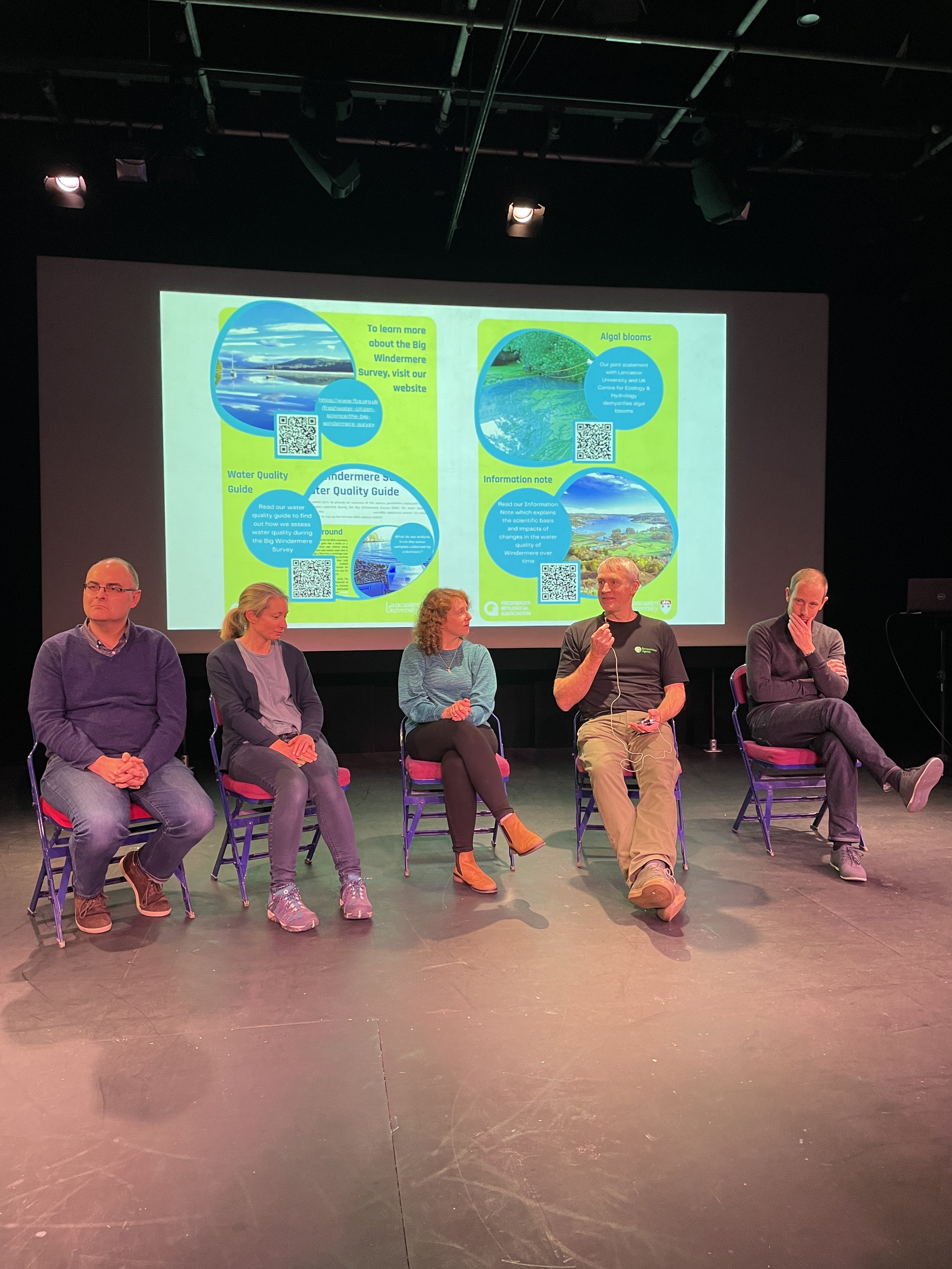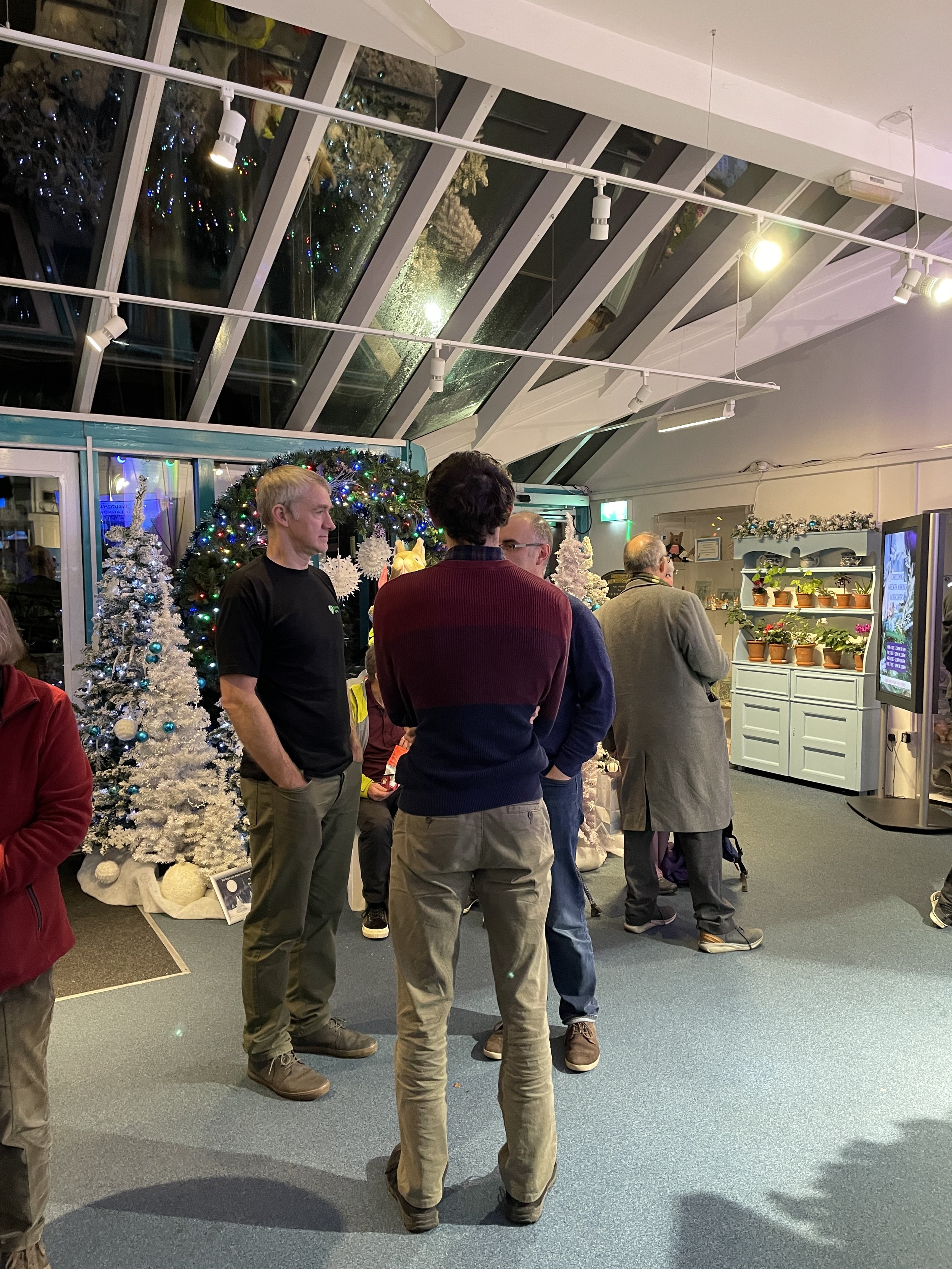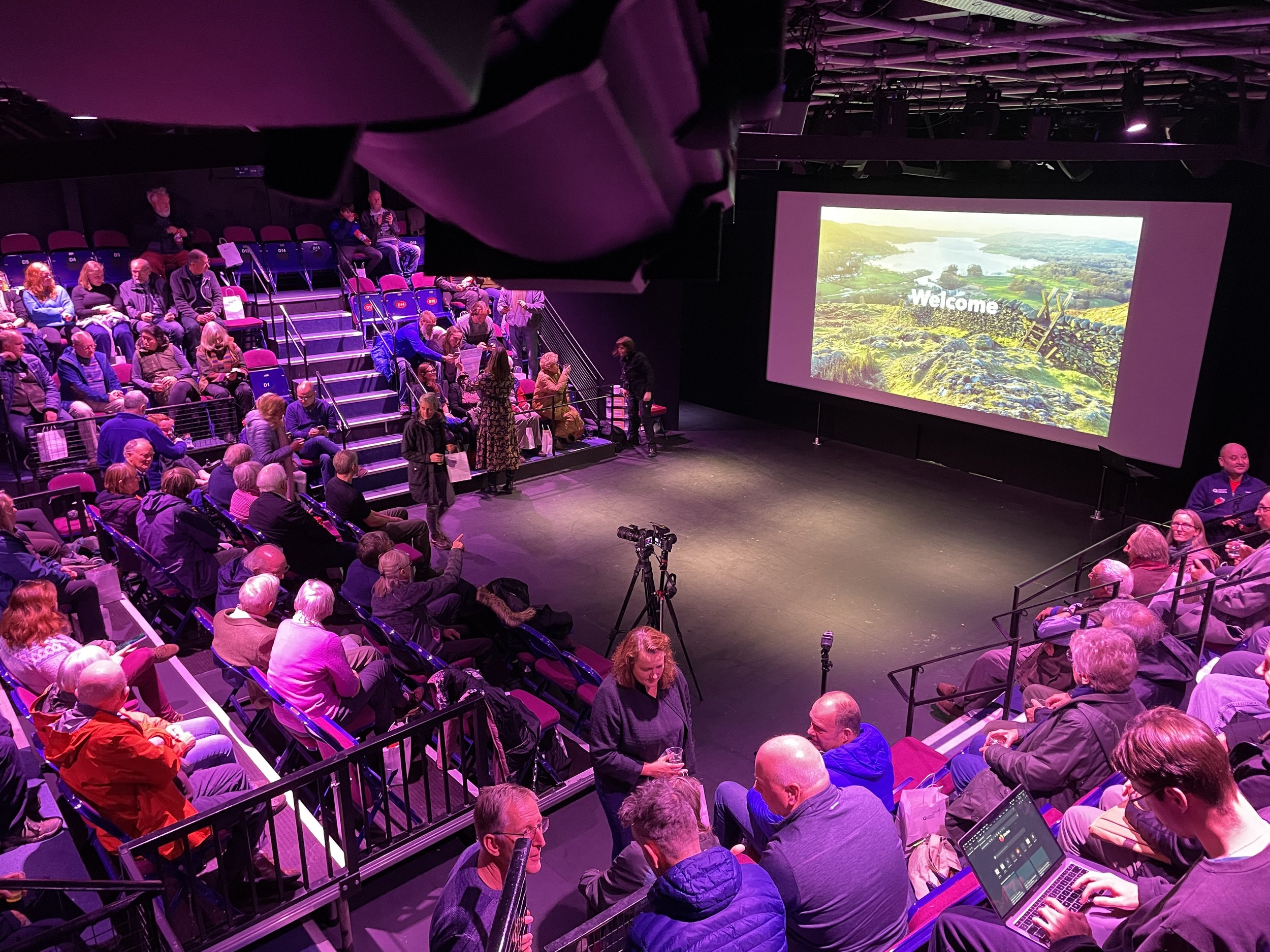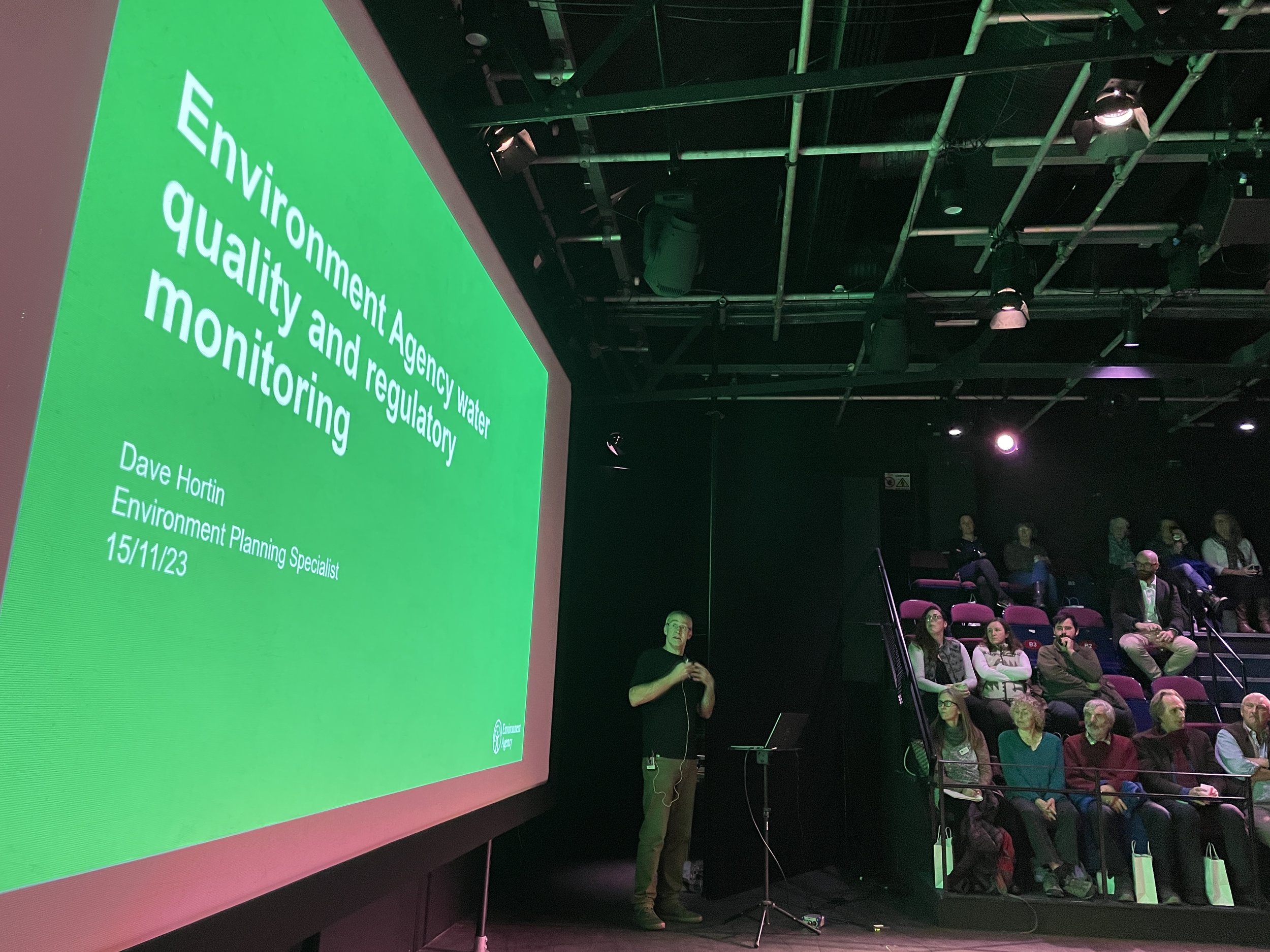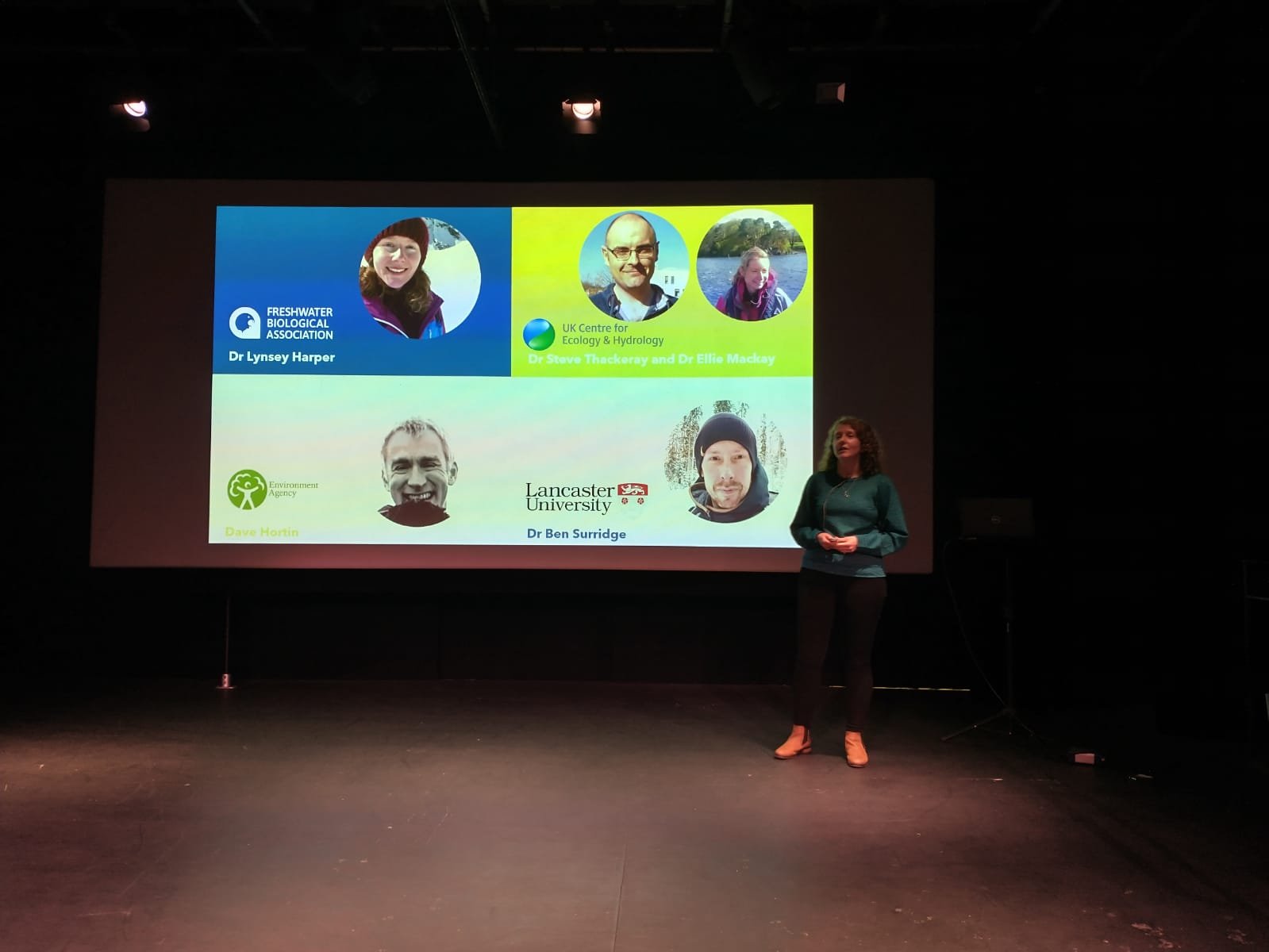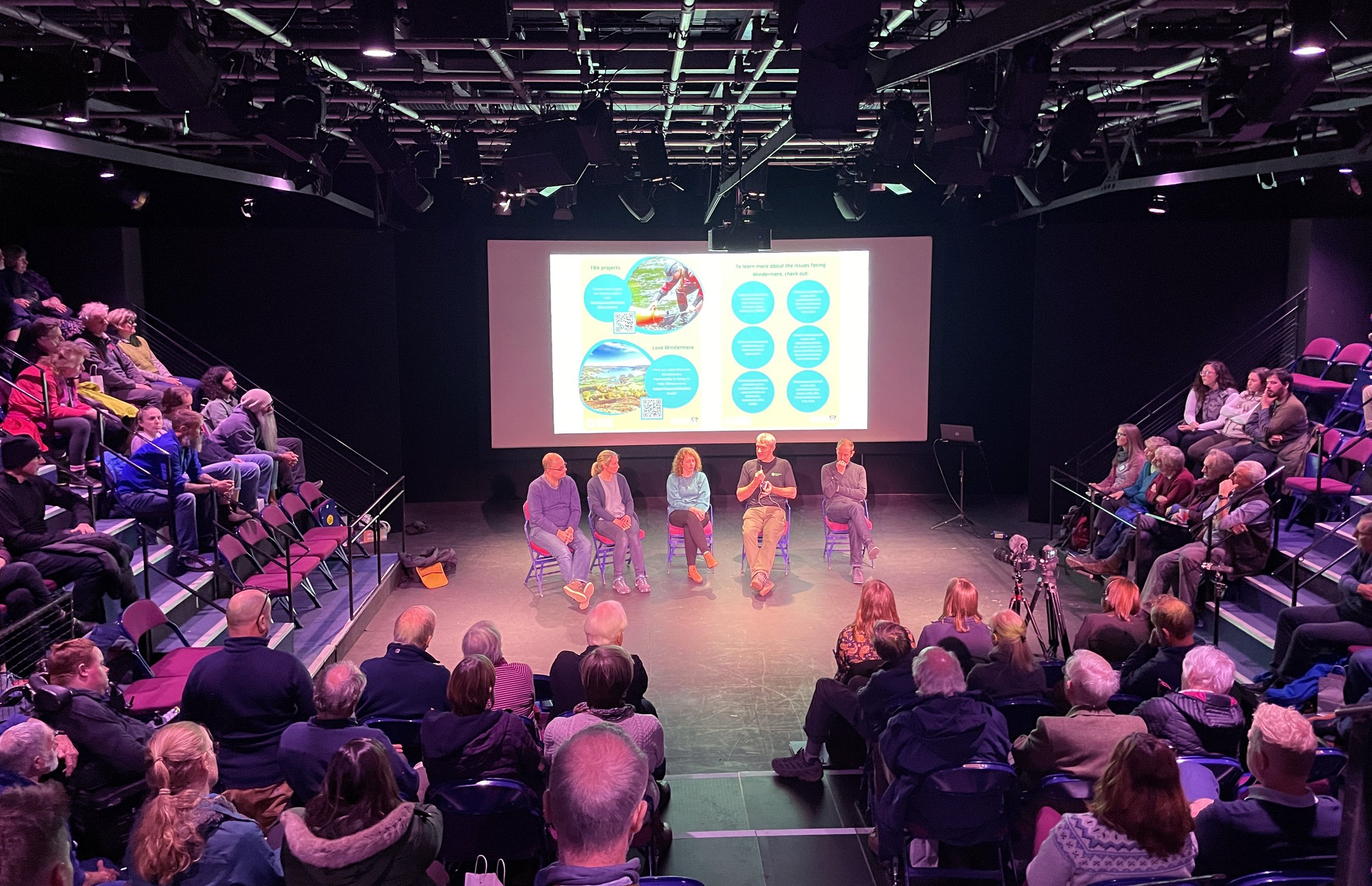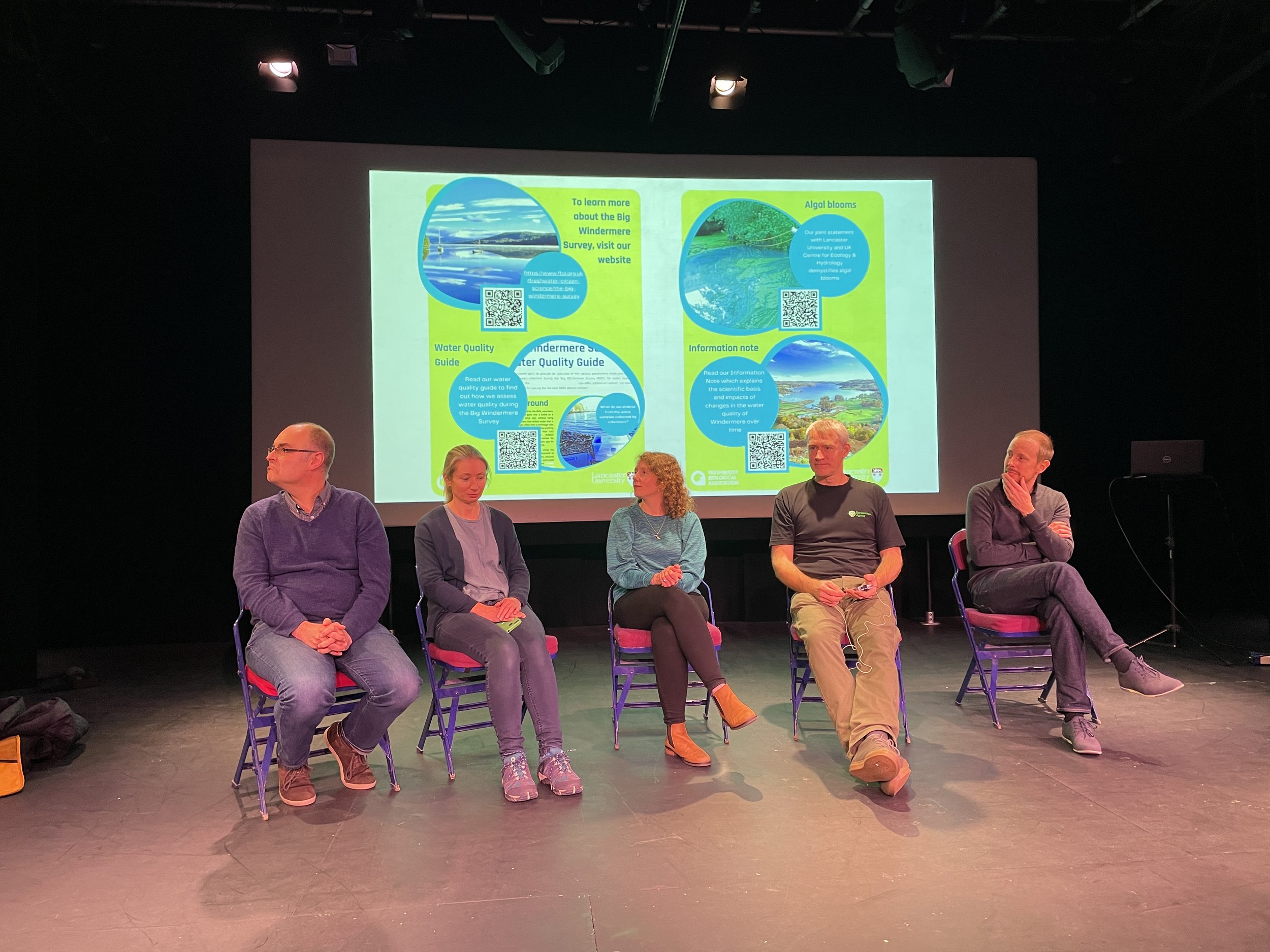Windermere Science Evening report
Emma Kelly, Windermere Project Officer, reports on the Windermere Science Evening.
On the 15th November 2023, the Freshwater Biological Association and Lancaster University hosted a Windermere Science Evening at the Old Laundry Theatre in Bowness-on-Windermere, Cumbria.
The event saw talks from the Freshwater Biological Association, UK Centre for Ecology & Hydrology, Lancaster University and the Environment Agency, discussing historical and current projects, research, and monitoring of water quality and ecology in the Leven catchment.
The evening proved very popular, with the theatre at full capacity and tickets available to the public free of charge. It was a chance to understand more about the main pressures that affect water quality, long-term data, and regulatory monitoring in the catchment, and there were opportunities to ask questions to scientists about the state of Windermere and what needs to be done to improve its health.
Guests were greeted with welcome drinks and a goodie bag of snacks for the evening, along with an audience poll asking: ‘What word would you use to describe Windermere?’
Presentations included:
Freshwater Biological Association: ‘Setting the scene: Windermere’s history and current pressures on water quality’. Presented by Dr Lynsey Harper.
Lynsey took us through a brief history of the Freshwater Biological Association and its role in monitoring and research on Windermere since the 1940’s. Lynsey also explained why water quality is so important to all life and what impacts humans are having on it, covering the current and historical issues facing the lake including nutrient inputs, land use, invasive non-native species and climate change.
UK Centre for Ecology & Hydrology: ‘Long-term changes in the ecology of Windermere’. Presented by Dr Steve Thackeray and Dr Eleanor Mackay.
Ellie and Steve took us through the history of long-term monitoring on Windermere, including changes in monitoring techniques used, from manual sampling, high-frequency automatic monitoring buoys, eDNA through to citizen science. They showed evidence of the impacts of climate change, with a 1°C increase in average temperatures between the 1950s and 2010s, and they highlighted some of the potential effects this has had on the ecology of the lake. They discussed how the water chemistry has also changed in this time period, with rising and falling nutrient concentrations and oxygen depletion in deep waters, as well as discussing that underwater seasons are shifting and that Arctic charr populations are declining.
Environment Agency: ‘Environment Agency water quality and regulatory monitoring’. Presented by Dave Hortin.
Dave explained the different regulatory monitoring carried out by the Environment Agency in the catchment. This includes 24 sample point locations around Windermere for water quality monitoring under the European Union Water Framework Directive using ecological and chemical classifications based on a range of determinants, and four sites that are sampled for faecal indicator bacteria to compare against bathing water quality standards set out in the European Union Bathing Water Directive. Dave also explained the routine sampling carried out by the Environment Agency at permitted sites in the catchment and explained the outcome of spot sample investigations carried out for chemical water quality parameters, such as investigations into misconnections on Mill Beck. Finally, Dave mentioned the recent deployment of sondes to provide continuous monitoring of water quality parameters in certain areas of the catchment.
Lancaster University: ‘Insights into the water quality of Windermere and its catchment from the Big Windermere Survey.’ Presented by Dr Ben Surridge.
Ben’s talk discussed a citizen science project, the Big Windermere Survey, and took us through its aims and history as well as discussing what results from the first year and the latest results from August 2023 tell us about water quality in Windermere. Ben explained that the Big Windermere Survey is the largest citizen science project of its kind to focus on water quality in the UK. Data indicate that phosphorus concentrations in Windermere remain higher than those needed to restore and protect the lake. However, there are opportunities to reduce phosphorus inputs to Windermere from a range of sources, including through changes in management of wastewater and of land. It was clear that concentrations of bacteria are generally low in the catchment, but there are sites and times of year when concentrations increase substantially and pose a risk to human health. Data from the Big Windermere Survey are being used to start and continue conversations with stakeholders to create improvements in the catchment.
It was clear from all presentations that future management and restoration of the lake must jointly consider all pressures influencing water quality and improving ecological health will require nutrient inputs from different sources to be identified and reduced. It was also clear that management and restoration will need to go further than ever before to achieve improvement in the face of climate change, with long-term data on the lake’s biology and water chemistry being key to providing evidence-based solutions.
The evening ended with a Q&A panel where guests had a chance to ask questions to all presenters to understand the complexity of the issues facing Windermere and what needs to be done to tackle them.
Guests were also asked to complete a poll asking: ‘What issue would you most like to see tackled on Windermere?’
In sum, the evening was a great success and very informative! Thank you so very much to Lynsey, Ellie, Steve, Dave and Ben for delivering fantastic talks.
